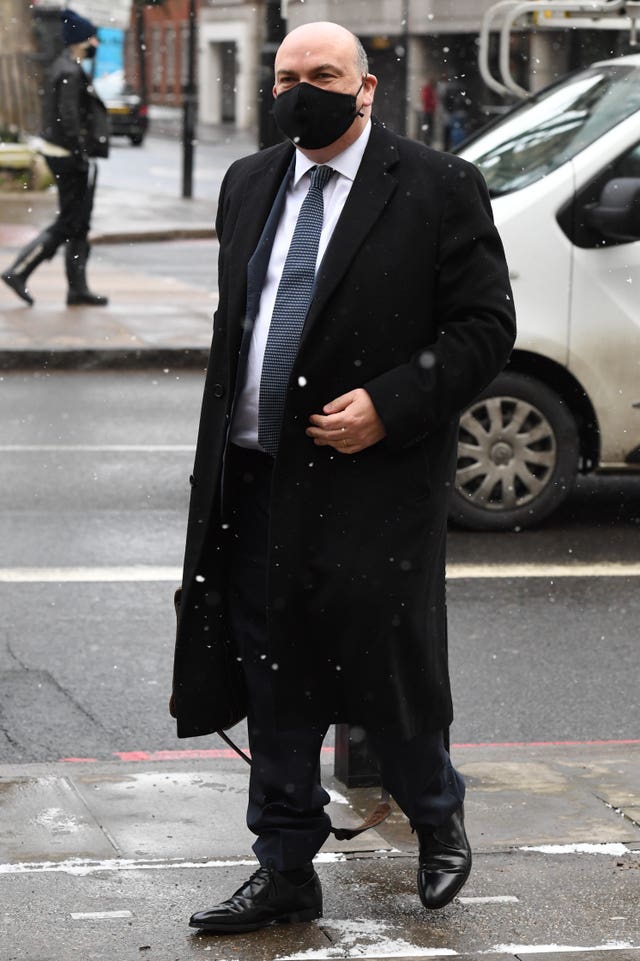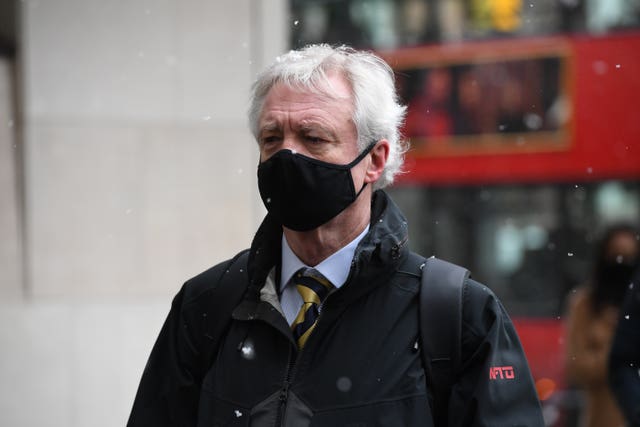
A British technology tycoon should not be sent to the US to face charges of multibillion-dollar fraud, and should instead be dealt with in a UK court, his lawyer has told an extradition hearing.
Michael Lynch is wanted by American authorities over the sale of his software company Autonomy to Hewlett Packard (HP) in 2011 for 11 billion dollars (£8.5 billion), which resulted in heavy losses for the US firm.
US authorities claim Mr Lynch deliberately overstated the value of his company, which specialised in software to sort through large data sets.
Mr Lynch, a 55-year-old father of two teenage daughters from Chelsea, south-west London, denies wrongdoing.

His lawyer told an extradition hearing at Westminster Magistrates’ Court on Tuesday that the case belonged in the UK.
Alex Bailin QC said: “The US is not the global marshal of the corporate world.
“We say this case belongs here in Britain.
“It concerns events, the majority of which involved the UK, it involved a British citizen (Mr Lynch) with strong lifelong links to the UK.”
He added: “Mr Lynch vehemently denies he was involved in any form of accounting wrongdoing, or fraud, or conspiracy or cover-up.
“But it ought to be examined by the English courts.”
A US extradition request for the businessman – who was previously a scientific adviser to the UK government and has a PhD in signal processing from the University of Cambridge – was submitted to British authorities in November 2019.
He faces 17 criminal charges in the US including wire fraud, securities fraud and conspiracy to defraud.
Supporters say he faces up to a decade in prison if convicted in the US.
HP is seeking damages of five billion dollars (£3.8 billion) from Lynch in a separate civil case in London’s High Court.
Mr Lynch claims any loss was down to the tech giant’s mismanagement of the acquisition.
Mr Bailin, on his client’s behalf, said: “We say, putting it bluntly, that that is a classic case of buyer’s remorse.
“It is suggested he (Mr Lynch) conducted a smear campaign against Hewlett Packard – that’s denied.”

He added: “There’s no good reason why the criminal allegations arising from the same conduct in the civil trial could not be tried here, at Southwark Crown Court for example.”
Mr Bailin said: “It is not in the interests of justice for extradition to take place.”
He said there were also concerns about the impact on Mr Lynch’s pre-existing health conditions were he to be held in a certain American jail, and warned he may not face trial in the US until two years after any extradition.
Mark Summers, briefly outlining the US government’s case, said the defence opening “laid entirely bare the utter legal irrelevance of vast swathes of its evidence”.
Addressing the judge, he added: “You may think that the defence protestation that all they are doing is disputing the allegation rather than entering into the trial arena – which is squarely prohibited – is a hollow claim.”
Mr Summers will continue his opening after lunch.
Former Brexit secretary David Davis, who has previously supported Mr Lynch’s bid not to be extradited, was sat in the public gallery for the defence opening statement.
The extradition hearing is expected to last all week, and a judgment reserved to a later date.


Comments: Our rules
We want our comments to be a lively and valuable part of our community - a place where readers can debate and engage with the most important local issues. The ability to comment on our stories is a privilege, not a right, however, and that privilege may be withdrawn if it is abused or misused.
Please report any comments that break our rules.
Read the rules hereComments are closed on this article